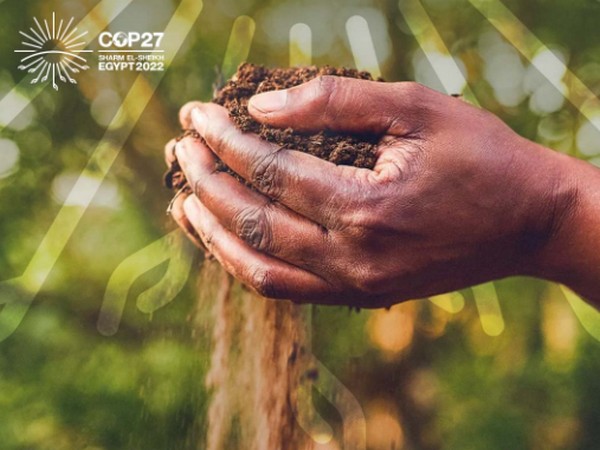Science News Roundup: NASA's new moon rocket tested by hurricane-force winds at Florida launchpad; COP27: Israel harnessing DNA of bygone wild crops to enhance food supply and more
The Volocopter test aircraft, which resembles a large drone with eight rotors, took off with a passenger on board from the Pontoise-Cormeilles airfield outside Paris and briefly circled around while other aircraft were in the vicinity. Explainer-What the latest U.N. science says about climate change At the COP27 conference in Egypt, delegates have at their disposal decades of research into warming trajectories published by the U.N. climate science agency to inform their decisions.

Following is a summary of current science news briefs.
NASA's new moon rocket tested by hurricane-force winds at Florida launchpad
NASA's new $4 billion moon rocket endured fierce winds and heavy rains early Thursday as it rode out Hurricane Nicole on its Florida launchpad, apparently with only minor damage, according to an early NASA inspection in the storm's aftermath. Sustained winds of 85 miles per hour (136.8 km per hour) were measured by launch-site sensors hundreds of feet above the ground, with gusts topping 100 mph, testing the design limits of the 32-story-tall rocket and posing added risks to a spacecraft already beset by technical glitches that have delayed its debut launch.
COP27: Israel harnessing DNA of bygone wild crops to enhance food supply
Could the key to securing the world's food supply for the future be hidden in the DNA of crops from the distant past? Scientists in Israel are creating a gene bank from the seeds of local wild crops, some which have survived for thousands of years since the birth of agriculture and that may help farmers deal with a harsher climate in the coming decades.
Divers find Challenger space shuttle wreckage off Florida coast
Divers from a documentary crew looking for the wreckage of a World War Two aircraft off the coast of Florida found a 20-foot section of the space shuttle Challenger, which exploded and broke apart shortly after its launch in 1986, NASA said on Thursday. The divers contacted NASA after spotting a large, clearly modern object mostly covered in sand at the bottom of the ocean and bearing the shuttle's distinctive tiles, the space agency said in a written statement.
Hubble telescope reveals huge star's explosion in blow-by-blow detail
About 11.5 billion years ago, a distant star roughly 530 times larger than our sun died in a cataclysmic explosion that blew its outer layers of gas into the surrounding cosmos, a supernova documented by astronomers in blow-by-blow detail. Researchers on Wednesday said NASA's Hubble Space Telescope managed to capture three separate images spanning a period of eight days starting just hours after the detonation - an achievement even more noteworthy considering how long ago and far away it occurred.
Drone taxi take first spin in air traffic near Paris
An electric helicopter with multiple rotors took its first flight in conventional air traffic near Paris on Thursday as it prepares for commercial flights from 2024. The Volocopter test aircraft, which resembles a large drone with eight rotors, took off with a passenger on board from the Pontoise-Cormeilles airfield outside Paris and briefly circled around while other aircraft were in the vicinity.
Explainer-What the latest U.N. science says about climate change
At the COP27 conference in Egypt, delegates have at their disposal decades of research into warming trajectories published by the U.N. climate science agency to inform their decisions. The Intergovernmental Panel on Climate Change (IPCC) produces reports roughly every five years that represent global scientific consensus on climate change, its causes and its impact. Last year's report tackled the main drivers of global warming and the core elements of climate science.
(With inputs from agencies.)
- READ MORE ON:
- Florida
- Egypt
- Hurricane Nicole
- Israel
- Challenger
- U.N.
- World War Two
- NASA
- Paris
ALSO READ
Tennis drama 'Challengers' showcases Zendaya's versatility
"43 ghost towns...": Israeli researcher om present situation in Pakistan amid war with Hamas
Legal pressures mount on German policymakers to cut aid to Israel
Israel Targets Aid Convoy in Gaza, Resulting in Tragic Consequences
"We do hear deafening sounds of war all around us": Israeli researcher on living through war with Hamas










